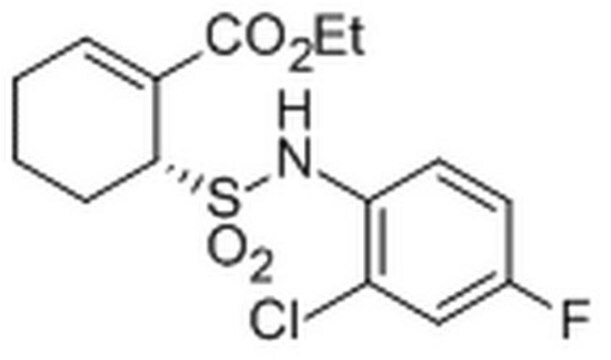B2311
5-(2-Benzothiazolyl)-3-ethyl-2-[2-(methylphenylamino)ethenyl]-1-phenyl-1H-benzimidazolium iodide
≥98% (HPLC)
About This Item
Recommended Products
Assay
≥98% (HPLC)
form
powder
color
yellow to orange
solubility
DMSO: 5 mg/mL, clear
storage temp.
2-8°C
SMILES string
[I-].CC[n+]1c(\C=C\N(C)c2ccccc2)n(-c3ccccc3)c4ccc(cc14)-c5nc6ccccc6s5
InChI
1S/C31H27N4S.HI/c1-3-34-28-22-23(31-32-26-16-10-11-17-29(26)36-31)18-19-27(28)35(25-14-8-5-9-15-25)30(34)20-21-33(2)24-12-6-4-7-13-24;/h4-22H,3H2,1-2H3;1H/q+1;/p-1
InChI key
NAYRELMNTQSBIN-UHFFFAOYSA-M
Biochem/physiol Actions
Features and Benefits
Storage Class Code
11 - Combustible Solids
WGK
WGK 3
Flash Point(F)
Not applicable
Flash Point(C)
Not applicable
Personal Protective Equipment
Certificates of Analysis (COA)
Search for Certificates of Analysis (COA) by entering the products Lot/Batch Number. Lot and Batch Numbers can be found on a product’s label following the words ‘Lot’ or ‘Batch’.
Already Own This Product?
Find documentation for the products that you have recently purchased in the Document Library.
Articles
We present an article about how proliferating cells require the biosynthesis of structural components for biomass production and for genomic replication.
Protocols
Sigma-Aldrich offers many products related to PKB/Akt for your research needs.
Our team of scientists has experience in all areas of research including Life Science, Material Science, Chemical Synthesis, Chromatography, Analytical and many others.
Contact Technical Service








